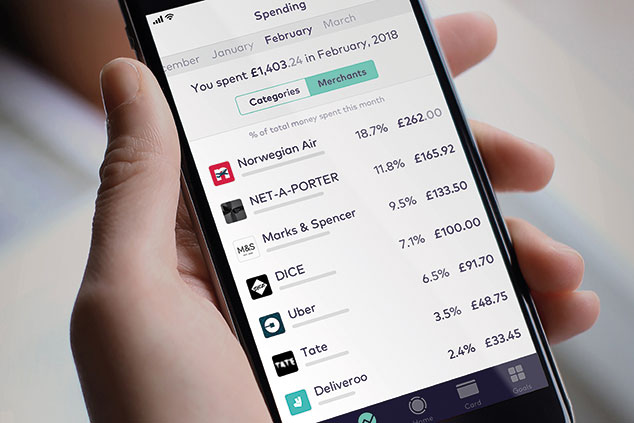
Personal finance apps for your smartphone can be a very useful tool for tracking your expenditure.
When it comes to organising our finances, some of us half-heartedly update an Excel spreadsheet every few months. Then there are those who know their account balances down to the penny. If you’re more the former than the latter, there are several apps (there always are) designed to help you, or perhaps your children, keep track of your money.
Breaking down spending
First, the apps offered by digital banks such as Monzo and Starling are very useful for seeing exactly what you’re spending your money on. While you might think you keep a rough tally in your head of what you’ve spent week to week, it can be a shock seeing just how quickly trips to the local supermarket or meals out add up. These apps set out your spending and group it into categories such as “groceries”, “eating out” and “bills”. You can then easily look at the breakdown on your phone, which is a lot less hassle than logging into online banking and poring over your statements.
With Monzo, you can set budgets for different categories and send money back and forth between other Monzo customers’ accounts. With both, you can request to round up transaction amounts, diverting the extra cash into a savings fund. What’s more, the debit cards associated with these accounts tend to be good for overseas holidays, offering fee-free spending and withdrawals (though there may be limits).
Yolt offers many of the same features as the above apps, but rather than being linked to one current account it aggregates all your accounts in one place. The app, which is owned by Dutch bank ING, takes advantage of recently implemented “open banking” rules, which require banks to give third parties access to people’s banking data. You can link up all of your bank accounts (as long as the bank is signed up to open banking), including credit card and saving accounts, as well as pension and investment funds.
Finally, if you’re looking to take the “rounding up” feature a step further, you could have a look at the Moneybox app. As with Starling, it rounds up your purchases to the nearest pound. But rather than putting the difference into a savings account, Moneybox will invest it in a “cautious”, “balanced”, or “adventurous” way across a mix of cash, global shares and property equities from providers such as Fidelity and iShares. You can also choose to invest through an individual savings account (Isa). Note that this is probably only best for those looking to dip their toes into investing: as well as a fixed charge of £1 per month, you pay an annual charge of 0.45% of the amount invested. Then there’s the cost of investing in the funds themselves. There are cheaper investment platforms out there for those looking to invest more proactively.